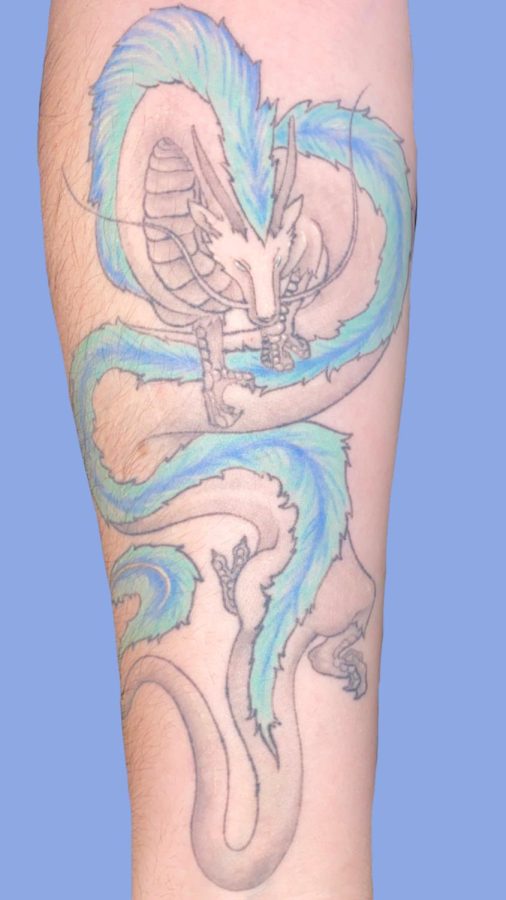Discrimination of tattoos and piercings in the job market
Despite the openness of most high-paying jobs towards facial jewelry and visible tattoos, it is not always a guarantee that you will not be discriminated against for having them.
Many of us have no idea what to do after college. Some of us have a vague idea, and others have our sights set on their one true dream job. But there’s one issue with the future workplaces of our generation: individuality.
How does one express themselves in their daily careers within the parameters of professional expectations, including ones with dress codes revolving around a professional appearance? That’s a lot of the word ‘professional,’ but what does it mean? Professionalism is a term best used to describe the ability and skill required to do a task, career or job.
Professionalism also requires an appearance to fit the title. In most cases, this appearance required of a career or job title eliminates individuality, but there are ways around this. Hair color, makeup, clothing, language and body modifications all play a huge role in one’s expression of themselves.
Specifically focusing on tattoos and body or face jewelry, we know there are limits to what is considered professional. Oftentimes, it is safe to assume that tattoos that will never be revealed while fully dressed are one such category of what is safe to have in the workplace. Jewelry in the ears is also deemed fine for women, but not always for men (unfortunately these stigmas linger).
Meanwhile, any facial jewelry is usually deemed unprofessional by the older generations and in most careers. Tattoos visible on the arms, hands, face and neck are always deemed unprofessional as well.
On the website titled vocational tracing HQ, we find out that they are dedicated to helping people find the right education for the job they want. In an article published in March titled “High Paying Jobs That Allow Tattoos & Piercings,” they walk their readers through the ins and outs of professional expression in the workplace.
Some of the prejudices towards tattoos can be that they are stigmatized and “connected with criminal behavior.” This is due to gang activity, as “most gang members have tattoos to show that they are a part of a group.” Therefore, the assumptions can be easy to make for some people.
Another reason beyond tattoos seeming unprofessional in general can be that they are “distracting.” Tattoos can be anything from beautiful to absolute and downright offensive. They are the ultimate mark of what you want to identify yourself as for the rest of your life. “It’s clear that tattoos, especially unique or bright, attract much attention.”
Offensive tattoos or controversial images or words depicted in a visible place can cause conflicts in everyday life. “There are companies that don’t want to hire people with tattoos in order to preserve the working environment.”
Despite all these previously held assumptions and stigmas, tattoos and piercings are becoming more mainstream and popular. The market for the tattoo industry is certainly on a rise among the younger generations without a doubt, but does this mean that there are jobs out there that will change with the times?
The answer is some, but not all. Some of the most conservative fields have valid reasons behind their ban on body modifications of any sort, while others are simply set in their ways. Some examples are healthcare, law enforcement, education, the legal system and government.
“Most companies nowadays have their rules and dress code… You should know that it all significantly depends on where your tattoo is placed and whether it can be covered.”
As for some careers, they have made significant advances in the expression of their employees: the beauty industry, influencer jobs, the artistic field, marketing, construction, food service and other minimum wage jobs. This is because most of the target employees for many of these jobs are those of the younger generation.
Many of the employers for these careers didn’t have a choice in this matter; they would have no one to work for them if they banned any tattoos or facial piercings since most of the target market for employment for these jobs have some form of a tattoo or piercing. I, myself, had three facial piercings and openly worked in the hospitality and management field for a short but intense 4 months at an amusement park.
Despite the openness of most high-paying jobs towards facial jewelry and visible tattoos, it is not always a guarantee that you will not be discriminated against for having them. On the MidAtlantic Employers’ Association (MEA) website, we know that there are laws “prohibiting employees from wearing t-shirts or requiring employees to wear a uniform,” but as for appearance policies towards tattoos, they are “legal unless it violates laws prohibiting discrimination, such as Title VII of the Civil Rights Act of 1964.”
So, it gets murky, but overall, we know you can legally be denied a job or position for your tattoos and piercings depending on the cultural, ethnic, or religious reasons behind such things. This does not mean you will or will not be denied a job. It will depend on what type of tattoo or jewelry you have and where it is, as well as where you want to be employed.
All of this goes to show that the job market is becoming more lenient to the freedom of expression of its employees in the workplace, but there’s still much to be done in the way of proving that individuality is not a negative trait of one’s ability to be professional and do their job. Nor are tattoos and facial modification a testament to one’s character or work ethic. One day soon it will be accepted everywhere, but for now, do your research before deciding to get a tattoo or piercing.



























